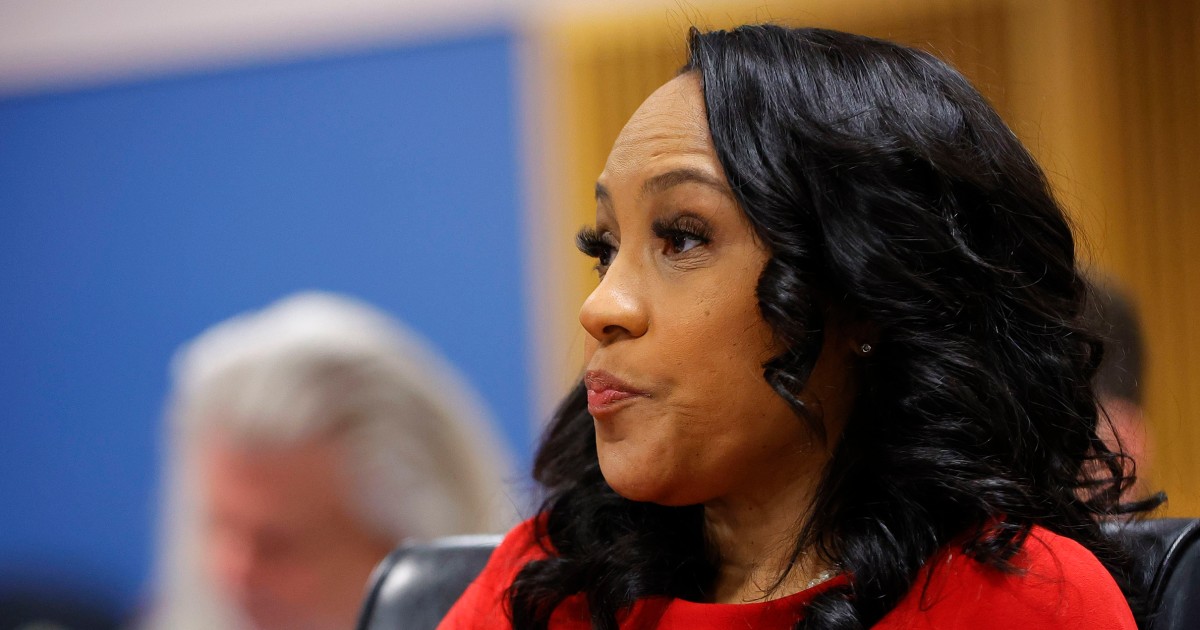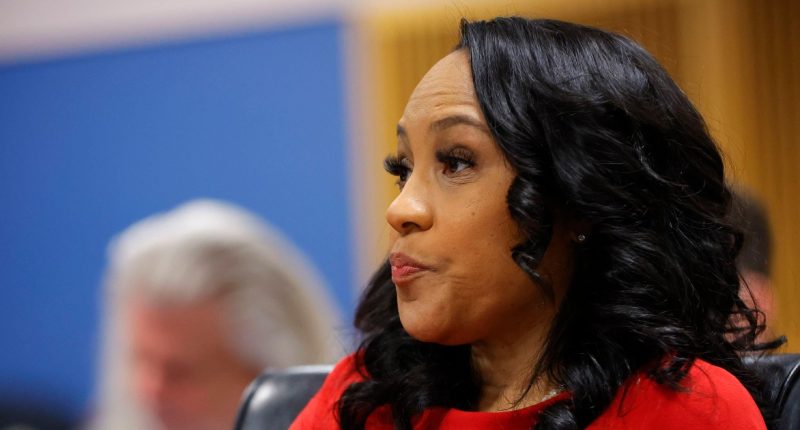
ATLANTA — A Georgia judge ruled Friday that Fulton County District Attorney Fani Willis should not be disqualified from prosecuting the racketeering case against former President Donald Trump and several co-defendants — with one major condition.
Fulton County Superior Court Judge Scott McAfee found the “appearance of impropriety” brought about by Willis’s romantic relationship with special prosecutor Nathan Wade should result in either Willis and her office leaving the case – or just Wade, who she’d appointed to head the case.
The choice is likely to be an easy one: If Willis were to remove herself, the case would come to a halt, but having Wade leave the case will ensure it continues without further delay.
The judge also found there was no “actual conflict” brought about by the relationship, a finding that would have required Willis to be disqualified. “Without sufficient evidence that the District Attorney acquired a personal stake in the prosecution, or that her financial arrangements had any impact on the case, the Defendants’ claims of an actual conflict must be denied,” the judge wrote.
The decision is a partial victory for Willis and leaves open the possibility the case could be tried before the 2024 presidential election. Had Willis been disqualified outright, the case would have had to go to a different prosecutor, who would be tasked with catching up on a case that Willis spent over two years building.
The ruling by McAfee comes after one of Trump’s co-defendants in the election interference case, former Trump White House and campaign staffer Michael Roman, filed a motion for Willis to be disqualified and the criminal case to be dismissed because of her allegedly“improper” personal relationship with Wade.
“We’re here today on this motion to disqualify DA Willis and her office because of her judgment, frankly,” Roman’s attorney John Merchant told the judge during March 1 arguments on the motion.
Roman alleged Willis skirted the rules to appoint Wade, and that she benefited financially from his appointment, which has earned his office over $600,000 to date.
Willis and Wade later acknowledged they’d been in a relationship, but maintained it began after he was appointed special counsel in November 2021, not before.
Adam Abbate of the DA’s office told the judge that Willis had not benefited financially from the appointment and had been the target of a campaign “to impugn her reputation.” He said Roman, Trump and the other co-defendants in the case had made “material misrepresentations” about the strength of their evidence, and he urged McAfee to deny the disqualification motion.
The judge signed off on an evidentiary hearing on Roman’s claims last month and said, “Disqualification can occur if evidence is produced demonstrating an actual conflict or the appearance of one.”
“Because I think it’s possible that the facts alleged by the defendant could result in disqualification, I think an evidentiary hearing must occur to establish the record on those core allegations,” he added.
In an extraordinary hearing that stretched over three days during a two-week period, Willis and Wade both took the stand and testified that they’d dated for a little over a year after he was appointed, and that she did not profit from his work. They both said while Wade would sometimes charge plane tickets for Willis to his credit card, she’d repay him with cash or by picking up other bills.
Lawyers for Roman, meanwhile, brought in a witness — a former friend of Willis’ named Robin Yeartie — who testified that the couple had started seeing each other well before Wade was appointed special prosecutor. They then attempted to corroborate her story with testimony from Wade’s former divorce lawyer and law partner.
The attorney, Terrence Bradley, had told another of Roman’s lawyers in a text message that Wade and Willis had “absolutely” started dating before the appointment. On the witness stand, Bradley initially refused to answer questions because Wade had asserted his attorney-client privilege.
McAfee later ruled that Bradley could be asked about the text messages, at which point he testified he was unsure when they started dating and said he had been “speculating” with Roman’s lawyer.
Trump attorney Steve Sadow asked Bradley why he would speculate about such a thing in a text message to a lawyer for a defendant in the case. “I have no answer for that,” he replied.
“Why wouldn’t you have said, ‘I don’t know’?” Sadow pressed.
“I don’t know,” Bradley said.
“Maybe it’s because you know what the truth is,” Sadow said.
Both Trump and Roman have pleaded not guilty in the case, which alleges they conspired with others to overturn the election results in the state.
Source: | This article originally belongs to Nbcnews.com










